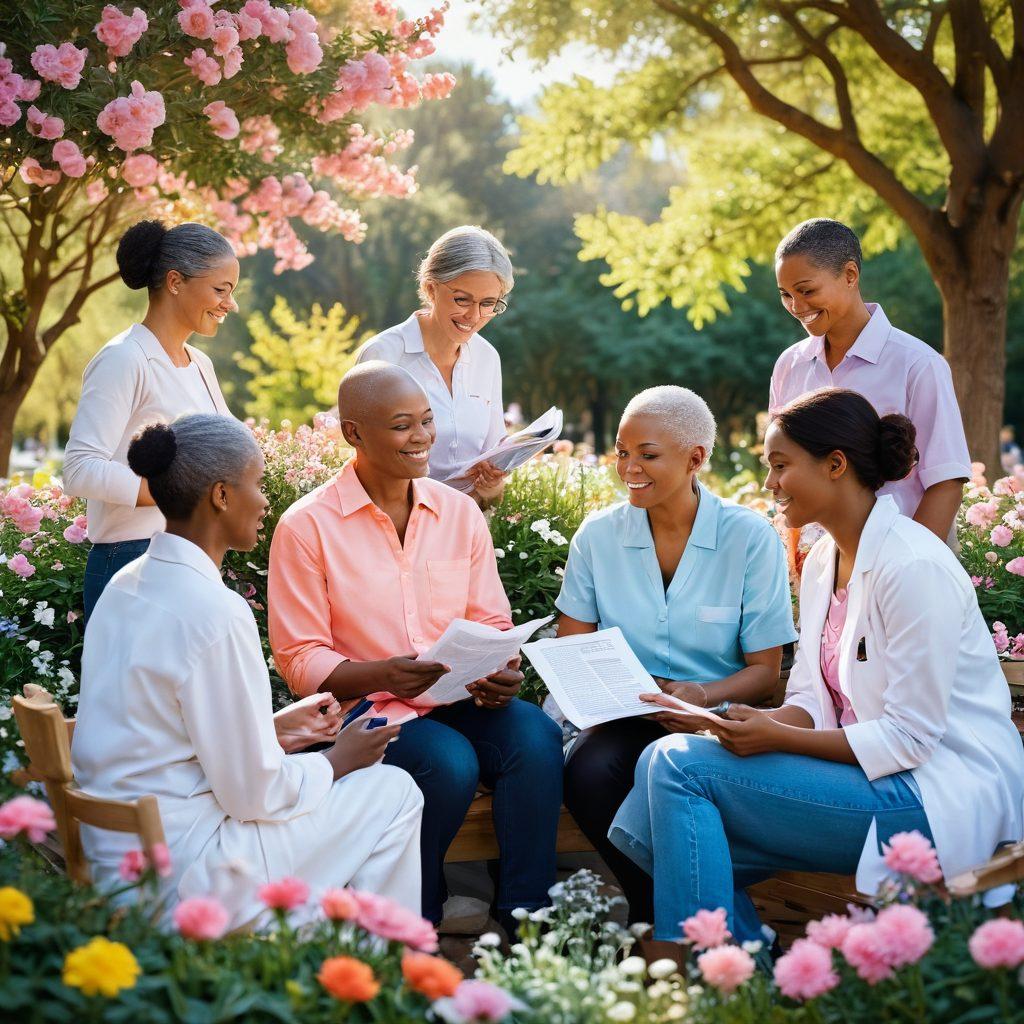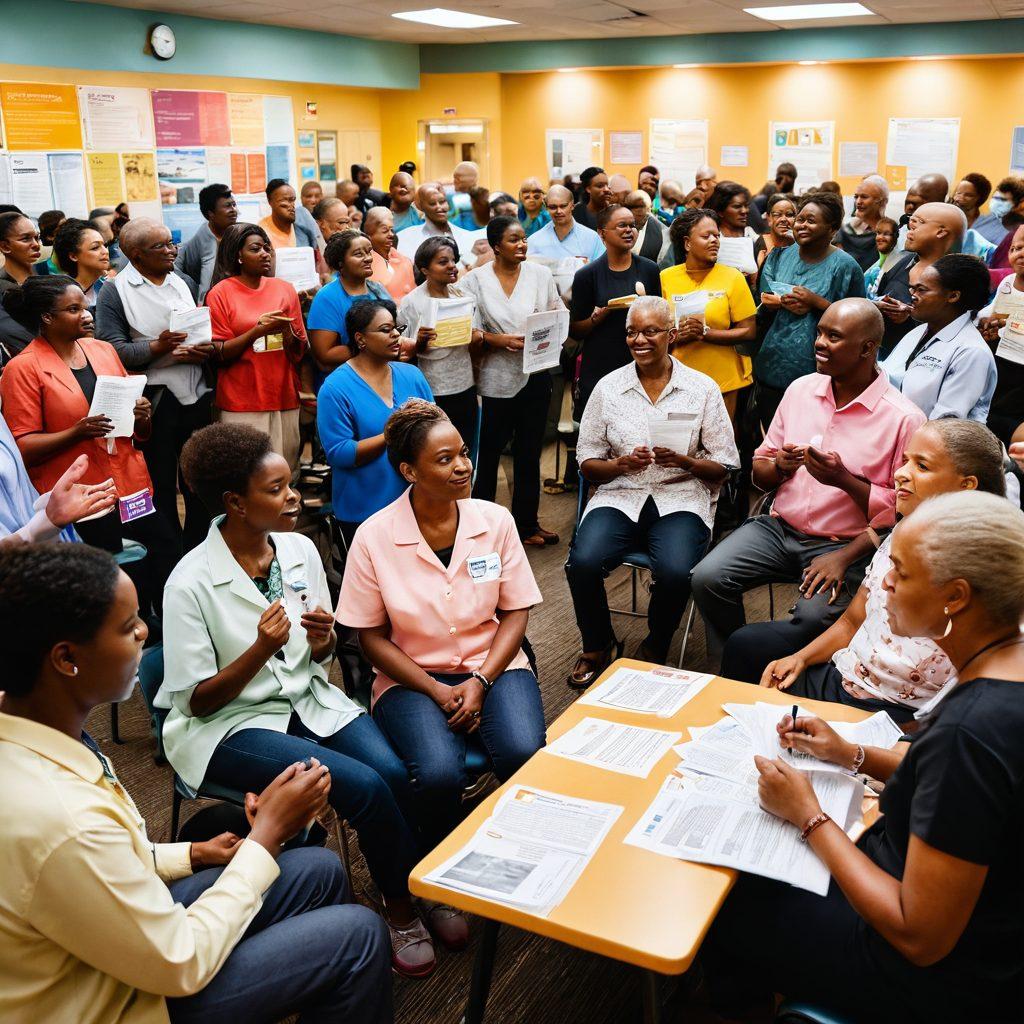Empowering Lives: A Comprehensive Guide to Cancer Awareness, Treatment, and Support
Navigating the journey through cancer awareness and treatment can often feel like embarking on an uncharted voyage. Picture this: you’ve received the news that changes everything. Your heart races as you grapple with the reality of a cancer diagnosis. With so many questions swirling through your mind, the importance of understanding oncology becomes crystal clear. This critical knowledge empowers cancer patients and their families to take control of their journey and advocate for their health. As we delve deeper, consider this—how equipped do you feel to tackle the unexpected challenges that cancer presents?
Cancer health is a complex landscape, but awareness is your compass. Imagine standing at a crossroad: one path leads to fear and uncertainty, while the other, paved with knowledge and support, guides you toward hope and resilience. One of the essential nuggets of information to grasp is the distinction between various types of cancer—like breast cancer and lung cancer—as each demands unique considerations in terms of treatment options and patient pathways. This is where cancer research shines, revealing groundbreaking cancer therapies such as immunotherapy and clinical trials, providing avenues of hope for many who refuse to back down.
As we explore cancer treatment, one can't help but notice the shift toward holistic health approaches. The mind-body connection is no mere anecdote; it is a powerful ally in combating the physical and emotional trials of cancer. Picture this: what if simple nutritional choices could bolster your strength and resilience during treatment? Incorporating nutrition for cancer into your daily regimen can significantly impact recovery, as studies show that a balanced diet enriched with antioxidants and essential vitamins can enhance overall well-being. Have you considered how food influences your healing journey?
Equally important is mental health support, an often-overlooked aspect of cancer care. The emotional toll of a cancer diagnosis can be overwhelming, but you don't have to navigate this tumultuous sea alone. Palliative care goes beyond managing physical discomfort; it encompasses emotional and spiritual needs, too, ensuring that cancer patients receive comprehensive care. There’s a vibrant cancer community filled with individuals who have walked similar paths, ready to offer guidance, comfort, and solidarity. Who better to provide support than those who understand the intricacies of this journey firsthand?
Finally, as we reflect on survivorship resources, consider this: awareness is not just about surviving cancer; it’s about thriving post-treatment. Connecting with patient advocacy groups or engaging in cancer support networks can provide a wealth of resources and guidance. It’s crucial to foster a sense of empowerment and equip yourself with the tools needed to navigate life after a cancer diagnosis. After all, your journey does not end with treatment. How will you rediscover your purpose and joy in life after cancer?
From Diagnosis to Survivorship: Your Comprehensive Pathway to Support
Imagine receiving a phone call that changes your life forever. The words 'cancer diagnosis' echo in your mind, leaving you feeling both shocked and uncertain. This moment marks the beginning of a journey that many embark upon, a complex path from diagnosis to survivorship. However, this pathway is not meant to be navigated alone. There’s a vibrant cancer community filled with oncology support, patient advocacy, and cancer awareness initiatives, all dedicated to providing the resources and encouragement you need to not just survive but thrive. How can you equip yourself with the knowledge and support necessary for such a journey?
In the labyrinth of cancer health, clarity is essential. Your first step should be understanding the type of cancer you are facing, whether it be breast cancer, lung cancer, or another form entirely. Each type harbors its own set of challenges and treatment options, from traditional cancer treatments like chemotherapy to innovative cancer therapies such as immunotherapy and clinical trials. Listening to experts in oncology blogs can provide insights into the latest cancer research, enabling patients and caregivers to make informed decisions. Have you explored the resources available to you?
As you navigate through cancer treatment, remember that mental health support plays an undeniably crucial role. Living with a cancer diagnosis can weigh heavily on your emotional wellbeing, but there are numerous survivorship resources designed to help. From support groups that foster camaraderie among cancer patients to one-on-one therapy sessions that delve into personal feelings and coping mechanisms, these avenues provide not only comfort but empowering tools to reclaim your life. How do you nurture your emotional health amidst the chaos?
Nutrition for cancer is another pivotal aspect to address. It’s often said that food is medicine; this rings true when dealing with cancer. Some patients discover that adopting a holistic health approach—focusing on diet, activity, and overall wellness—can improve their quality of life during treatment and beyond. Consider speaking with a nutritionist specializing in cancer health to develop a meal plan that fuels your body and spirit. What small changes can you make today to invest in your health journey?
Lastly, don’t underestimate the importance of palliative care, even if your focus is on treatment. Palliative care is all about improving quality of life by managing symptoms and stress, and it can be provided alongside curative measures. Embracing this form of care can help you and your loved ones breathe a little easier. The journey from cancer diagnosis to survivorship is littered with choices, challenges, and triumphs. With the right support, knowledge, and advocacy, you can carve your unique path and inspire others along the way. What legacy will your journey leave for the cancer community?
Empowering Patients: Harnessing the Power of Advocacy, Research, and Community in Cancer Care
In the journey of cancer care, patients often find themselves at the crossroads of fear and hope. The experience can feel isolating and overwhelming, but there lies an empowering truth – advocacy, research, and community support can transform that journey. Picture this: a patient recently diagnosed with lung cancer, overwhelmed by treatment options and clinical trials. What if this individual had a network ready to provide information and encouragement? Terrific resources like oncology blogs can empower cancer patients with knowledge, compassion, and hope, ensuring they’re not alone during this trying time.
The heart of cancer care lies in the community. Each story shared, each piece of information exchanged in forums or local meet-ups can drastically alter a patient's experience. When we consider common conditions like breast cancer or the need for mature discussions about cancer health, it's crucial that cancer patients tap into these support systems. Imagine attending a support group where members share their journeys through cancer treatment; the energy shifts from despair to strength as shared laughter and tears form deeper bonds. How can we harness this empowering support to spread awareness around cancer?
Patient advocacy is a game-changer in navigating the complexities of cancer treatment. It’s about taking ownership of one's health, understanding options available in cancer research—from immunotherapy trials to nutritional plans designed specifically for cancer patients. Think about that monumental moment when a patient realizes they are not merely at the mercy of their diagnosis but can influence their path to survivorship. Wouldn't it be liberating to walk into a consultation equipped with questions and support from the cancer community?
The power of collaborative storytelling can also be a conduit for change. For example, consider the preventive measures taken by those in the cancer community. Patients and survivors alike frequently share their experiences in oncology blogs, creating a ripple effect on cancer prevention. When someone hears, 'My journey with palliative care taught me the essence of holistic health,' it can inspire them to seek similar paths for balance, nutrition for cancer, and mental health support. How might sharing our stories pave the way for better outcomes in cancer health?
Ultimately, empowerment in cancer care isn’t just a concept – it’s a collective movement. From advocacy programs that educate about cancer therapies to community events that promote awareness of survivorship resources, there's magic in the unity of voices. Cancer patients deserve to know they are the heartbeat of the mission to improve cancer treatment and care. So, how can each of us play a role in this journey? By being advocates for ourselves and others, contributing to the cancer community, and fostering an atmosphere where hope thrives, we can ensure that every patient feels heard, supported, and empowered.


